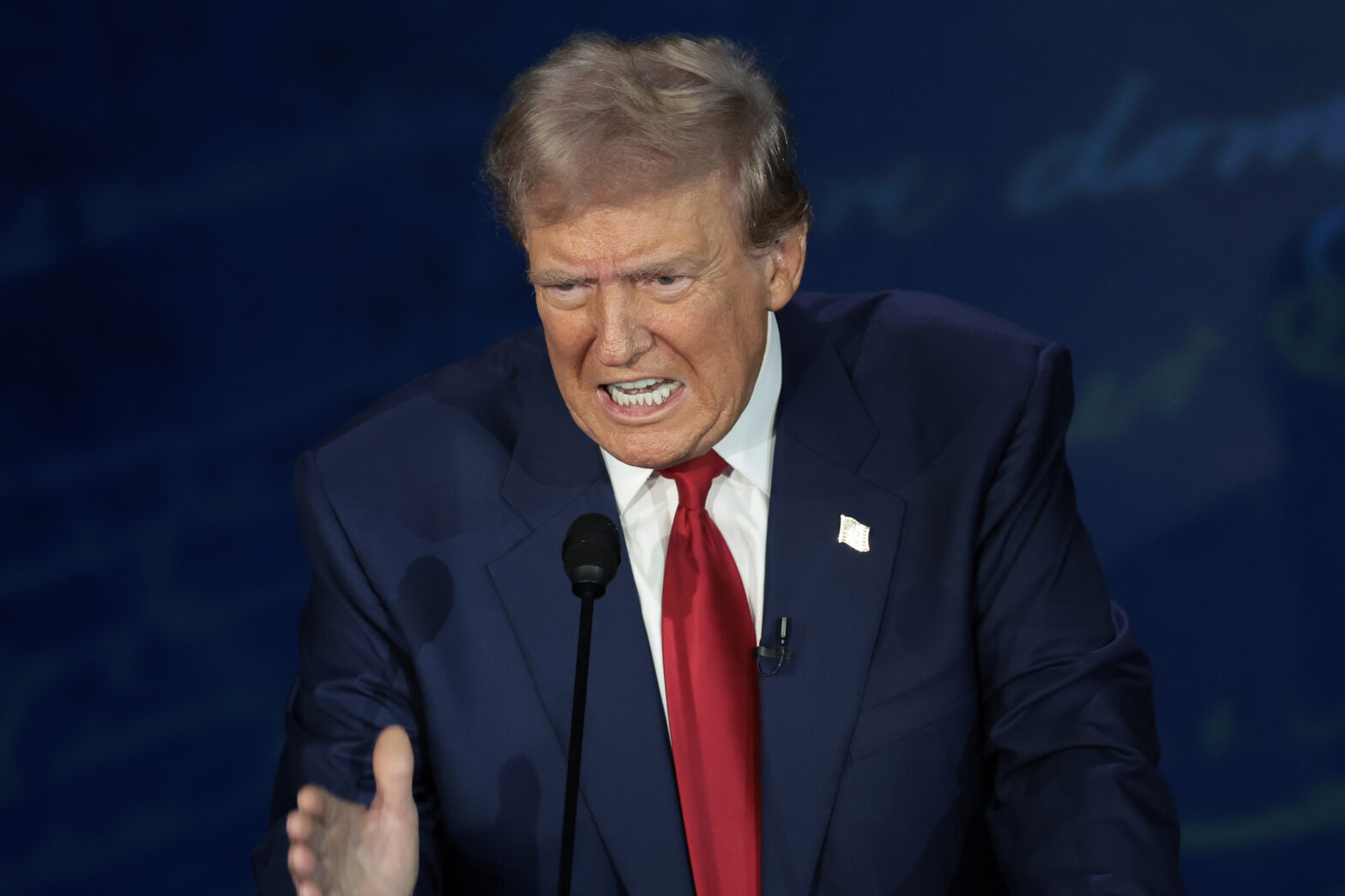Former president Donald Trump shocked many during Tuesday night’s presidential debate by making racist and unfounded claims about Haitian immigrants. The controversial statements alleged that immigrants were eating pets. These accusations have sparked widespread criticism and raised concerns about the spread of misinformation in political discourse.
During the televised debate with Vice President Kamala Harris, Trump specifically mentioned Springfield, Ohio. He claimed, “They’re eating the dogs. They’re eating the cats. They’re eating the pets of the people that live there.” This statement immediately drew attention and was swiftly fact-checked by debate moderators. They pointed out that city officials had declared these claims false.
The Origins Of Trump’s Bigoted Statements Against Haitian Immigrants
The origins of these rumors can be traced back to social media posts and right-wing commentators in the days leading up to the debate. JD Vance, Trump’s running mate and Ohio Senator, had earlier posted on social media platform X that “reports now show that people have had their pets abducted and eaten by people who shouldn’t be in this country.” However, Vance also acknowledged in another post the possibility that “all of these rumors will turn out to be false.”
Springfield City Commission officials have categorically denied these claims. In a statement to BBC Verify, they emphasized, “There have been no credible reports or specific claims of pets being harmed, injured or abused by individuals within the immigrant community.” The spread of these rumors highlights the power of social media in amplifying unverified information. A Facebook post about a cat allegedly killed by Haitian immigrants in Springfield, attributed to a friend of a neighbor’s daughter, gained traction online.
Additionally, unrelated incidents, such as a woman arrested for killing and eating a cat in Canton, Ohio — approximately 170 miles from Springfield — were misrepresented and conflated with the baseless claims about Haitian immigrants. Trump’s comments during the debate echo a pattern of inflammatory and anti-immigrant rhetoric that has characterized his political campaigns. During his presidency, he infamously questioned why the U.S. would accept people from “s**thole” countries, including Haiti and some African nations.
What Effect Do These Baseless Accusations Have?
The impact of these unfounded claims extends beyond the debate stage. They have fueled online discussions. Prominent but controversial figures like Elon Musk shared memes referencing the baseless rumors, reaching millions of viewers. Official Republican party social media channels, including the Republican House Judiciary Committee, have also alluded to these claims, further amplifying their reach.
However, fact-checkers and journalists have been working diligently to debunk these rumors. The Associated Press and other reputable news organizations have found no evidence to support Trump’s claims. John Kirby, spokesman for the U.S. National Security Council, called the comments “dangerous” and a “conspiracy theory … based on an element of racism.”





